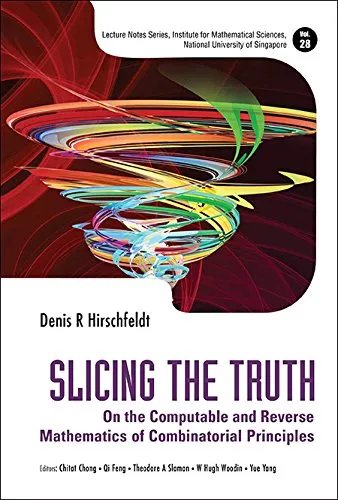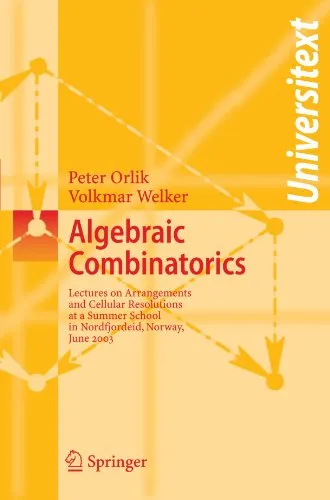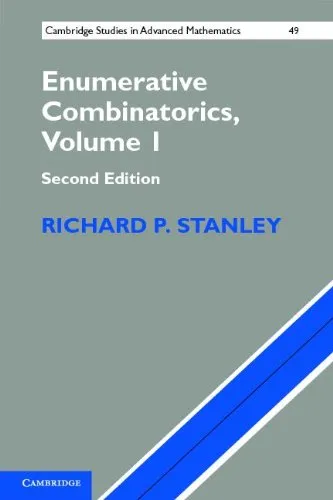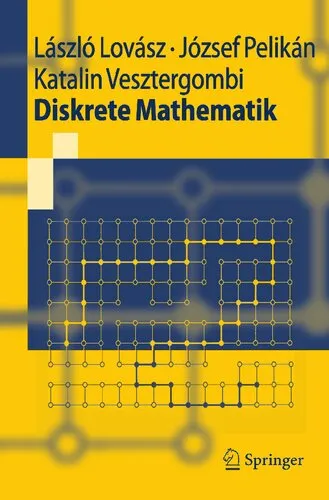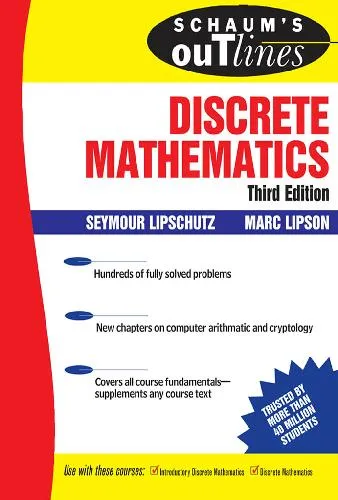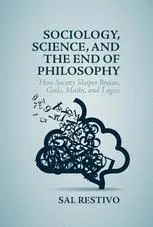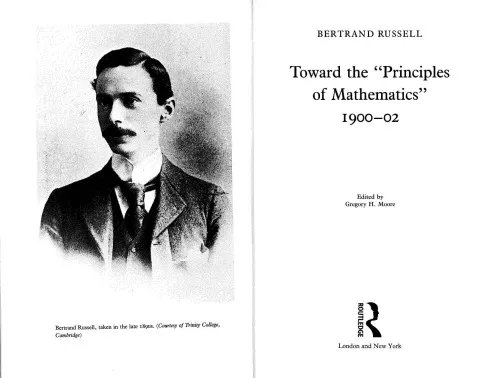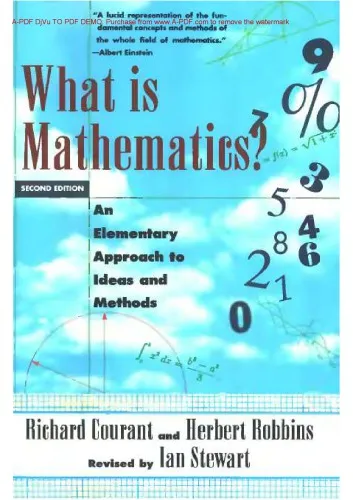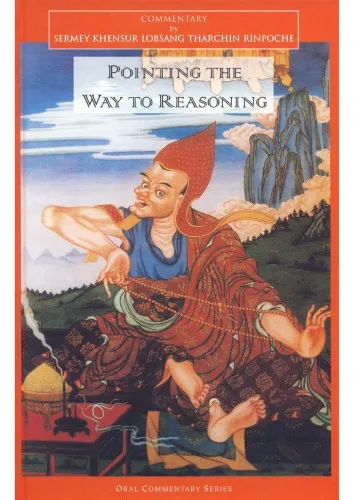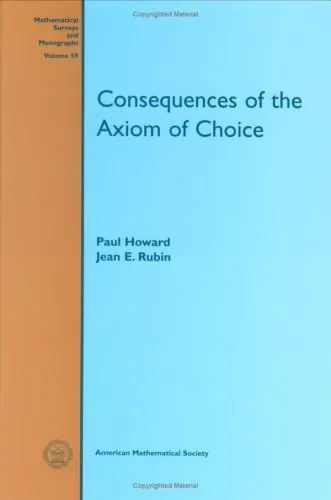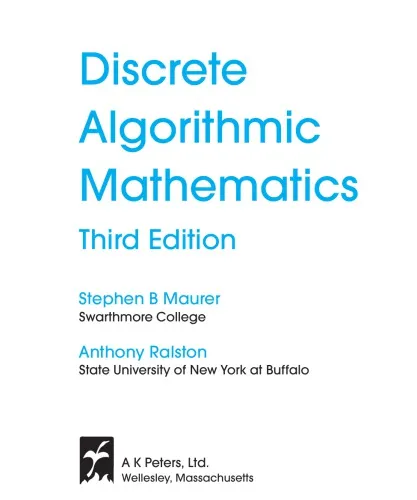Slicing the Truth: On the Computable and Reverse Mathematics of Combinatorial Principles
4.0
Reviews from our users

You Can Ask your questions from this book's AI after Login
Each download or ask from book AI costs 2 points. To earn more free points, please visit the Points Guide Page and complete some valuable actions.Related Refrences:
Welcome to 'Slicing the Truth: On the Computable and Reverse Mathematics of Combinatorial Principles'—a deep, intellectually engaging, and meticulously crafted exploration of the intersections between computable mathematics, logic, and combinatorial principles. This book, authored by Denis R. Hirschfeldt, Chitat Chong, Qi Feng, Theodore A. Slaman, W. Hugh Woodin, and Yue Yang, serves as a groundbreaking work for readers who are fascinated by the complexity of foundational mathematical ideas and their profound implications across the broader scientific and logical domains.
Detailed Summary
The book delves into the intricate relationships between computability, combinatorics, and reverse mathematics, positioning these concepts at the forefront of mathematical and logical scholarship. Through a comprehensive and methodical approach, the authors explore how combinatorial principles can be formalized and examined under the frameworks of reverse mathematics and computability theory. The title, "Slicing the Truth," metaphorically reflects the slicing of mathematical truths into finer, computable components, emphasizing the conceptual and logical elegance inherent in these fields.
Each chapter addresses significant combinatorial principles such as Ramsey's Theorem, the pigeonhole principle, and other key mathematical structures. These are analyzed from the dual perspectives of computation and logical subsystems, fostering a deep understanding of their foundational role. The book also highlights the impact of non-computability and the stratification of logical theorems in understanding the landscape of mathematical proof and complexity.
Rather than merely presenting these topics in isolation, the authors weave together an intricate narrative that illustrates the interdependencies of computability and combinatorics. Readers can expect to confront profound questions about the relationships between algorithms, mathematical structures, and the principles governing mathematical reasoning itself. By combining historical context, technical precision, and philosophical inquiry, the book offers a multidimensional learning experience for students, researchers, and seasoned mathematicians alike.
Key Takeaways
- A comprehensive exploration of key combinatorial principles such as Ramsey's Theorem and the pigeonhole principle.
- Understanding the intricate connections between computability theory and reverse mathematics.
- Insights into how mathematical truths are stratified, classified, and analyzed through the lens of logical frameworks.
- An illustrative narrative that highlights philosophical and foundational questions in mathematical logic.
- A rich blend of theory, proofs, and computations for both foundational research and practical applications within mathematics.
Famous Quotes from the Book
"In mathematics, understanding is not merely about resolving questions but slicing them into components that expose their deepest logical structure."
"Reverse mathematics offers an essential lens to clarify not just what we know in mathematics but why it is true, illuminating the fundamental underpinnings of computable principles."
"To comprehend the non-computable is to glimpse the profound edge of mathematics, where logic and philosophy meet computation head-on."
Why This Book Matters
In the ever-evolving landscape of mathematics and logic, the combinatorial principles at the heart of this book serve as more than abstract notions—they are foundational to understanding the nature of mathematical truths and the limits of computability. The book makes a compelling case for why the study of reverse mathematics is critical in uncovering the structural essence of proofs and theorems.
Furthermore, this work positions itself as an invaluable resource for researchers across mathematics, theoretical computer science, and philosophy. It bridges gaps between theory and practice, computation and proof, and logic and abstraction. Whether you are a student seeking a rigorous introduction to combinatorial mathematics or an expert hunting for new insights, 'Slicing the Truth' is a masterpiece that invigorates curiosity and challenges intellectual boundaries.
'Slicing the Truth' matters because it contributes not just to academic knowledge but to the broader understanding of how we, as humans, conceptualize and formalize the infinite complexities of our universe. At its heart, the book is a celebration of the interplay between algorithmic reasoning and logical necessity, offering timeless lessons for anyone invested in the pursuit of truth within and beyond mathematics.
Free Direct Download
You Can Download this book after Login
Accessing books through legal platforms and public libraries not only supports the rights of authors and publishers but also contributes to the sustainability of reading culture. Before downloading, please take a moment to consider these options.
Find this book on other platforms:
WorldCat helps you find books in libraries worldwide.
See ratings, reviews, and discussions on Goodreads.
Find and buy rare or used books on AbeBooks.
